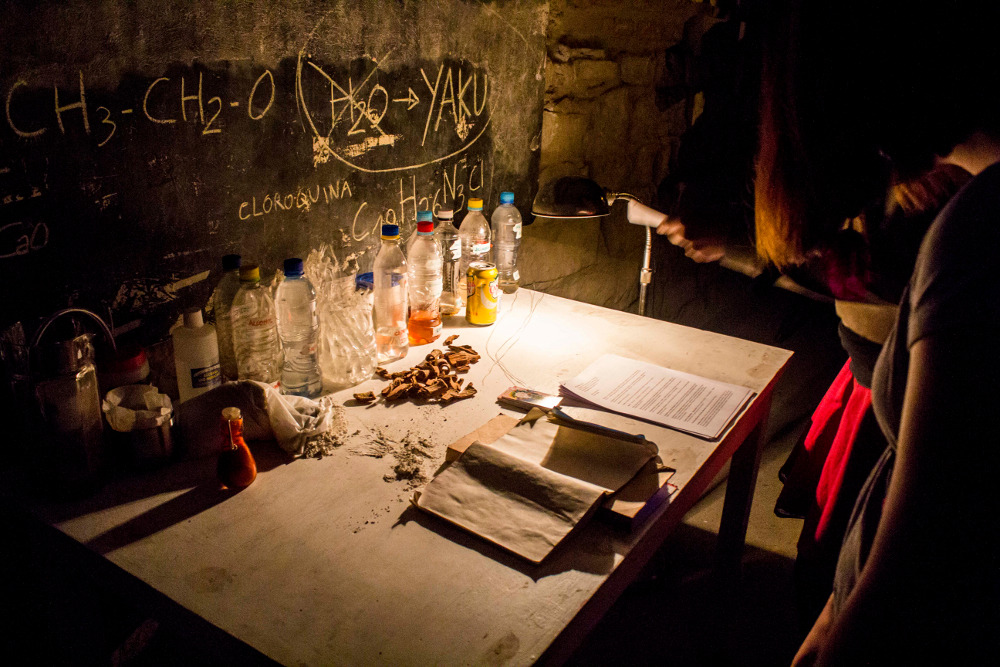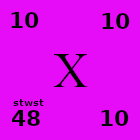
2012 - ongoing
Title: Akelarre Yaku / Akelarre Cyborg
Autors: Transnoise & Quimera Rosa
This performance is based on a re-appropriation of the notion of witchcraft, entirely distanced from any associations
to black magic, esoterism, or other definitions produced by the medieval catholicism, the colonization, fairy tales or
Disney’s films. If we distance from these definitions, we find ourselves inside a set of practices, that through the
manipulation of symbols, bodies, substances, objects, views and spaces, aim at the modification/creation of our
identities, relationships, and surroundings. A mixture of practices that witches used to name “art“ or “arts“, from
which we could assume that they could call themselves... “artists“. So, the covens were encounters of collective art.
The notion of ‘coven’, applied to the performance, has nothing to do with any theatrical approach. Leaving aside
any notions of representation or expressiveness, we go for replacing them, by those of investigation and
experimentation. The akelarre is not a demonstration of what the witches are, either is the place where the
participants pretend to be witches. The akelarre is becoming-witch
(Devenir).
https://quimerarosa.net/akelarre-cyborg/
https://quimerarosa.net/541/
In this artwork Ayllu collective proposes a collaborative investigation around love. Beyond the political,
anthropocentric, and individualizing debates about love, they weave a portal of escape from everyday life, saturated
by the capitalistic codification of relationships and the brutality of civilizing choreopolitics. If the colonial wound that
permeates and constitutes current geopolitical systems is widened and deepened through interpersonal
relationships, turning intimacy into more of an access to violence than a tool for community strengthening, it is
collective practice that makes the exercise of a non-conciliatory love possible. Thus, artists and collaborators evoke
modes of existence that precede the subjectified (and racialized, and gendered) body, aiming at the resumption of a
sensibility that does not distinguish body and surroundings, a way of being and feeling that is, at the same time,
before and after the invention/theft of the body by colonial technologies.

